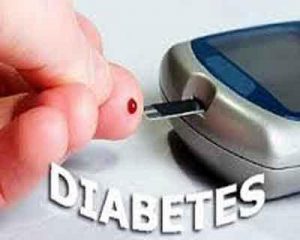- Home
- Editorial
- News
- Practice Guidelines
- Anesthesiology Guidelines
- Cancer Guidelines
- Cardiac Sciences Guidelines
- Critical Care Guidelines
- Dentistry Guidelines
- Dermatology Guidelines
- Diabetes and Endo Guidelines
- Diagnostics Guidelines
- ENT Guidelines
- Featured Practice Guidelines
- Gastroenterology Guidelines
- Geriatrics Guidelines
- Medicine Guidelines
- Nephrology Guidelines
- Neurosciences Guidelines
- Obs and Gynae Guidelines
- Ophthalmology Guidelines
- Orthopaedics Guidelines
- Paediatrics Guidelines
- Psychiatry Guidelines
- Pulmonology Guidelines
- Radiology Guidelines
- Surgery Guidelines
- Urology Guidelines
Scientists create better blood sugar test for diabetes

Washington : US researchers have developed a more precise method for estimating average blood sugar levels that can cut diagnostic errors by more than 50 percent compared to the current widely used but sometimes inaccurate test.
"What we currently deem the gold standard for estimating average blood glucose is nowhere as precise as it should be," Xinhua news agency quoted senior investigator John Higgins at Harvard Medical School and a clinical pathologist at Massachusetts General Hospital as saying.
"Our study not only pinpoints the root of the inaccuracy but also offers a way to get around it."
Findings of the study were described in the US journal Science Translational Medicine, Xinhua said.
Because blood sugar varies by the hour and even by the minute, doctors use the so-called A1C test as a proxy to gauge a person's average blood glucose level over the previous three months.
The A1C test measures the amount of glycated hemoglobin, glucose that sticks to hemoglobin, or oxygen carrier, inside red blood cells, which can live in the body for only three months.
The test, however, is somewhat imprecise. It can lead to identical readings for people with different average blood sugar levels. At the same time, people with similar blood sugar levels can also end up having widely divergent results.
The team found these inaccuracies stemmed entirely from individual variations in the life span of a person's red blood cells.
"Like a water-soaked sponge that's been sitting on the kitchen sink for days, older red blood cells tend to have absorbed more glucose, while newly produced red blood cells have less because they haven¹t been around as long," Higgins explained.
To eliminate the influence of age related variation, the team developed a formula that factors in the life span of a person's red blood cells and then compared the age-adjusted blood sugar estimates to estimates derived from the standard A1C test and to readouts of glucose levels measured directly by continuous glucose monitors.
The standard A1C test provided notable off-target estimates in about a third of more than 200 patients whose test results were analyzed as part of the research.
By factoring in red blood cell age, however, the team reduced the error rate to one in 10.
Under the new model, patients could wear a glucose monitor for a few weeks to have their blood sugar tracked as a baseline, also allowing physicians to calculate the average age of a person's red blood cells before having the monitor removed, the team said.
"Physicians treating recently diagnosed patients would immediately know what a patient's red blood cell age is," Higgins said.
"The patient's test results can then be adjusted to factor in the red blood cell age and get a result that more accurately reflects the actual levels of blood sugar, allowing them to tailor treatment accordingly."
Currently, diabetes affects more than 422 million people worldwide and knowing accurate blood sugar averages can help them better manage the disease and their risk of diabetes-related complications.

Disclaimer: This site is primarily intended for healthcare professionals. Any content/information on this website does not replace the advice of medical and/or health professionals and should not be construed as medical/diagnostic advice/endorsement or prescription. Use of this site is subject to our terms of use, privacy policy, advertisement policy. © 2020 Minerva Medical Treatment Pvt Ltd